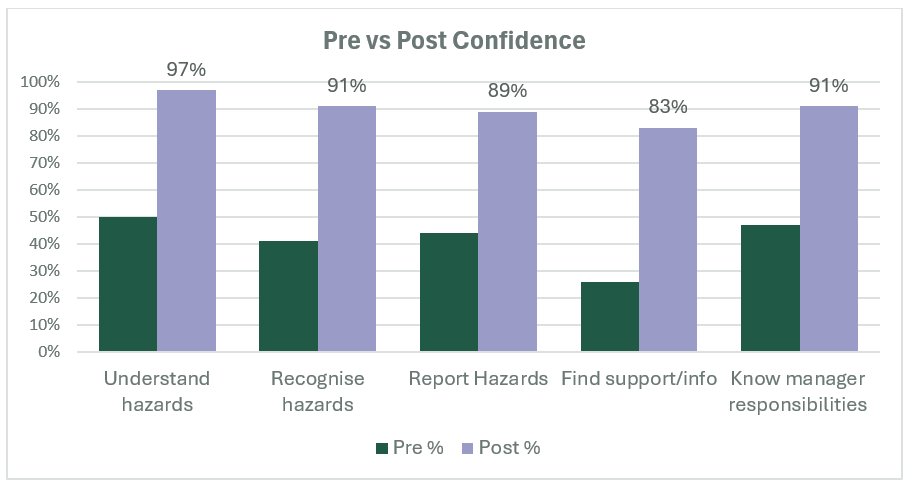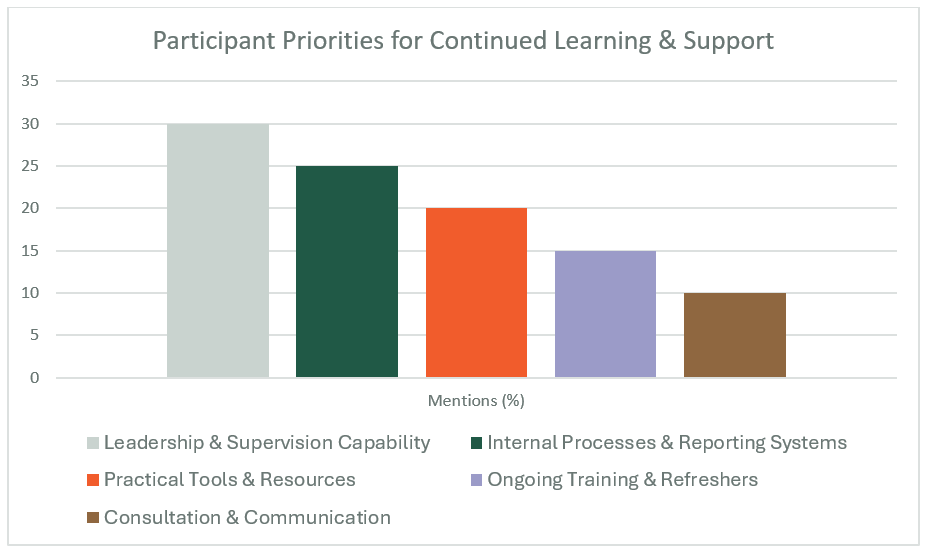The True Value of Training. Starting the Conversation on Psychosocial Risks
Psychosocial risks are among the fastest-growing workplace challenges under WHS law. Policies that sit on paper, and training delivered as a tick-box exercise, don’t fix the problem. Real culture change requires action.
Training: A Catalyst, Not a Cure
When it comes to workplace challenges, especially those as complex as psychosocial risks, training is often seen as the answer. But is it really the solution? In my experience, training is not a silver bullet. Instead, it’s a powerful way to create awareness, embed knowledge, and get the conversation started.
Recently, we delivered two half-day psychosocial risk management workshops for leaders for a client. The sessions were interactive, practical, and grounded in real-world scenarios. But our goal wasn’t just to “tick the box.” We wanted to spark meaningful change, by helping leaders recognise, talk about, and act on psychosocial risks in their everyday work.
Measuring Impact: What Changed?
To understand the impact, we used pre- and post-training questionnaires. The results were striking:
Figure 1: Confidence in understanding, recognising, and reporting psychosocial hazards improved dramatically after training.
These numbers show that training can rapidly build knowledge and confidence. But they also highlight something deeper: people left the sessions more willing to talk about psychosocial risks, clearer about their roles, and better equipped to act early when issues arise.
Training Reveals Needs, Not Just Solutions
Importantly, the training also surfaced ongoing needs. Participants asked for:
Figure 2: Participant priorities for continued learning and support, highlighting leadership capability, internal processes, and practical tools as top needs.
This feedback reinforces a key point: training is just the beginning. It opens the door to honest conversations and highlights where systems, leadership, and resources need to evolve.
Keep the Conversation Going
Training is not the sole solution, but it is a vital first step. It creates a shared language, builds confidence, and helps organizations prioritize what matters. Most importantly, it gets people talking, and that’s where real change begins.
Training is the spark, not the solution.
Ready to start the conversation?
Contact Risk Collective to explore how we can help embed psychosocial risk management in your organisation.



